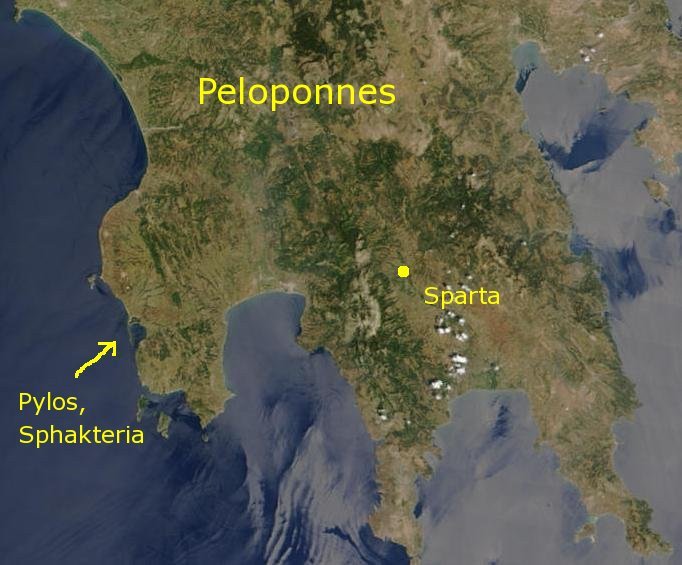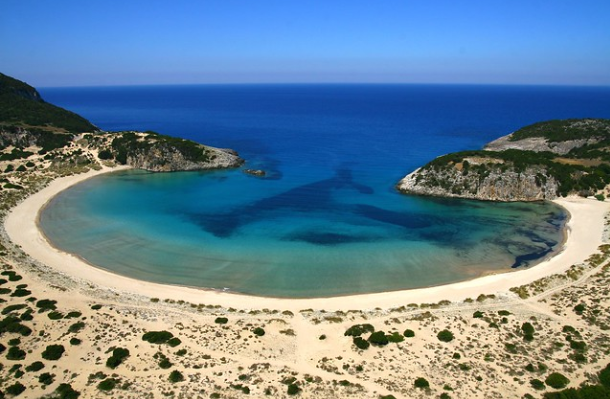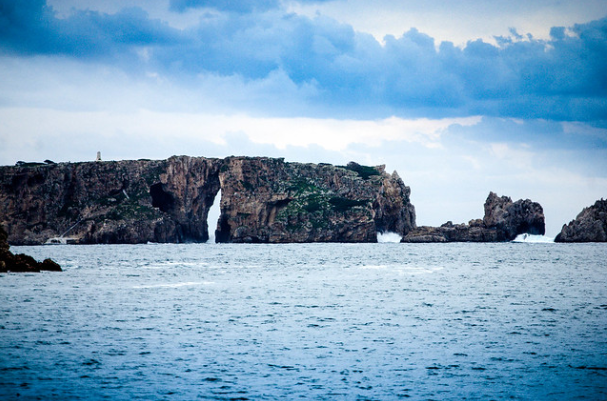In that respect, a small Athenian force set up a base at Pylos, on the Bay of Navarino very close to the Spartan who saw this move as quite threatening and were forced to fight back.
In the course of the military operations, a three-stage battle followed. At first, a series of attacks by land and sea was launched by the Peloponnesians against Athenian forces occupying the peninsula of Pylos.
The attack by the sea was highly expected by Demosthenes and for that reason it was successfully blocked.

The second action was the naval battle in the harbour where the main Athenian fleet arrived and defeated the Spartan one, leaving a small Spartan army off the island of Sphacteria. And that’s where the third part of the battle took place: after negotiation talks collapsed, the Athenians attacked the Spartan on the islands forcing them to surrender.
They had guarded the island closely and made sure the hoplites from Sparta were trapped and were unable to escape.
Some of the most elite Spartan warriors were among those who surrendered, which had an impact on the prestige of Sparta as well as a clear signal to the Athenian coalition that the war continued to its favor.
More specifically, the 120 Spartans on the island represented almost the one tenth of that elite class, on which the whole Spartan government was based. It’s no wonder that Spartan negotiators were quick to offer their willingness to come to an agreement for the cessation of hostilities.

Also, the whole of the Spartan ships were surrendered to Athens as a guarantee for good conduct during the negotiations.
But talks didn’t go well despite the seeming necessity from both sides.
Athenian statesman Cleon demanded for harsher terms on the peace agreement so that Athens would take control over Megara and Sparta abandon some of its most important allies.
Pylos remained in Athenian hands and was then used as a base for raids into Spartan territory and as a refuge for fleeing Spartans.

Cover Photo Credits: https://www.flickr.com/photos/vathis/4929713291/